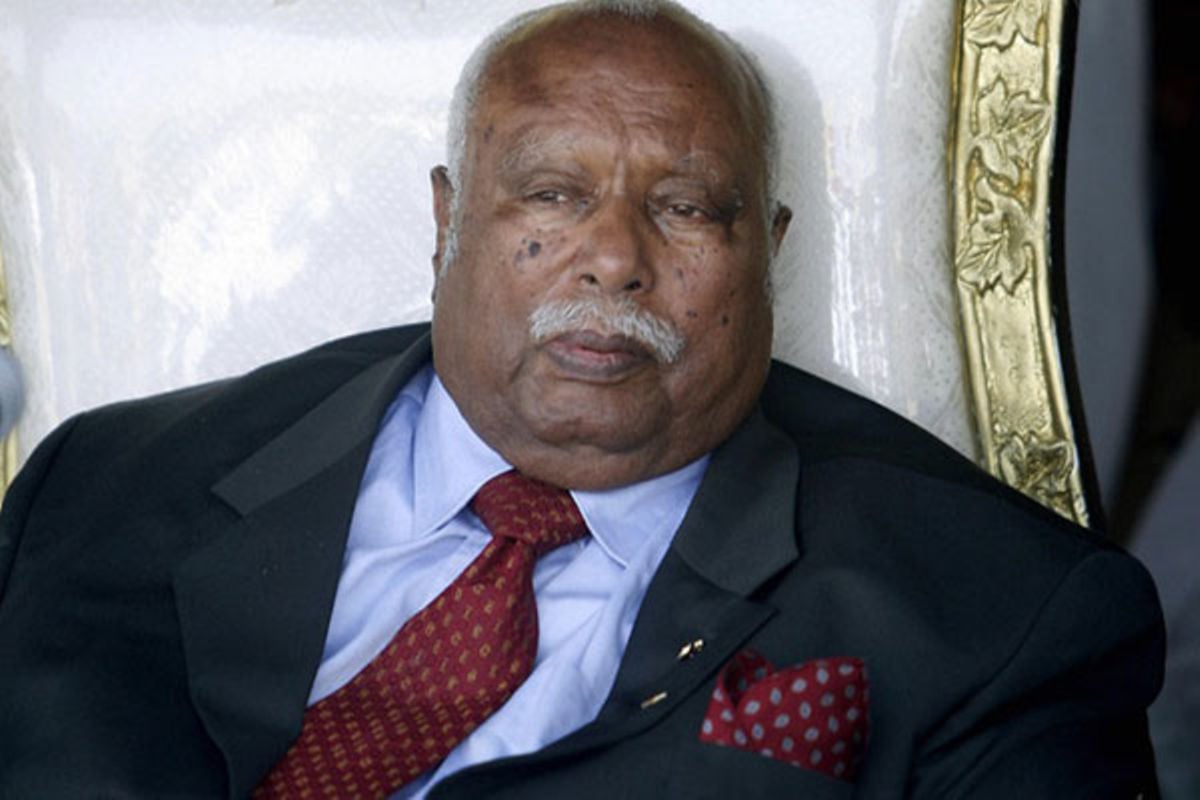Girma’s Life and Career: Ethiopia Girma

Girma Wolde-Giorgis, a prominent figure in Ethiopian politics and society, has left an indelible mark on the nation’s history. From his early life and education to his distinguished career, Girma’s journey is a testament to his unwavering commitment to serving his country.
Early Life and Education
Girma Wolde-Giorgis was born in 1924 in Addis Ababa, Ethiopia. He received his early education at the prestigious Tafari Makonnen School, where he excelled in his studies. He later pursued higher education at the University of London, earning a law degree. His academic achievements laid the foundation for his future contributions to the legal and political landscape of Ethiopia.
Career Path, Ethiopia girma
Girma’s career spanned several decades, marked by his dedication to public service. He served in various capacities, demonstrating his expertise and commitment to his country’s development.
Key Positions Held
Girma’s career path is marked by his ascent to significant positions within the Ethiopian government. He held several key roles, including:
- Minister of Justice: Girma served as the Minister of Justice from 1960 to 1966, during which time he played a pivotal role in shaping the country’s legal system.
- Ambassador to the United Nations: Girma’s diplomatic skills were recognized when he was appointed as the Ambassador to the United Nations from 1966 to 1974. He represented Ethiopia on the international stage, advocating for its interests and promoting peace and cooperation.
- President of Ethiopia: In 2001, Girma was elected as the President of Ethiopia, a position he held until 2010. His presidency was characterized by his commitment to democratic principles and his efforts to promote national unity and stability.
Contributions to Ethiopian Politics and Society
Girma’s contributions to Ethiopian politics and society are multifaceted and enduring. He played a crucial role in shaping the nation’s legal framework, fostering international relations, and promoting democratic principles.
Legal System Development
Girma’s expertise in law was instrumental in developing and strengthening the Ethiopian legal system. As Minister of Justice, he oversaw significant reforms that aimed to modernize and enhance the country’s legal framework. His contributions laid the groundwork for a more just and equitable legal system.
International Relations
Girma’s diplomatic skills were evident during his tenure as Ambassador to the United Nations. He effectively represented Ethiopia on the global stage, advocating for its interests and promoting peace and cooperation among nations. His diplomatic efforts strengthened Ethiopia’s international standing.
Democratic Principles
Girma’s presidency was marked by his commitment to democratic principles. He championed the rule of law, respect for human rights, and the peaceful resolution of conflicts. His leadership contributed to a more democratic and inclusive Ethiopia.
Timeline of Girma’s Life and Career Milestones
- 1924: Born in Addis Ababa, Ethiopia.
- 1940s: Attended Tafari Makonnen School and later pursued higher education at the University of London, earning a law degree.
- 1960-1966: Served as Minister of Justice, playing a pivotal role in shaping the country’s legal system.
- 1966-1974: Appointed as Ambassador to the United Nations, representing Ethiopia on the international stage.
- 2001-2010: Elected as the President of Ethiopia, leading the country with a focus on democratic principles and national unity.
Girma’s Presidency

Girma Wolde-Giorgis served as the fourth president of Ethiopia from 2001 to 2018. He was a prominent figure in Ethiopian politics, holding various positions throughout his career, including serving as a member of the Derg, the military junta that ruled Ethiopia after the overthrow of Emperor Haile Selassie in 1974.
Girma’s Role as President
The Ethiopian Constitution of 1995 established a presidential system, with the president as the head of state. The president’s role is largely ceremonial, acting as a symbol of national unity and representing the country in international affairs. The president is also responsible for appointing the prime minister, who holds the real executive power. Girma’s presidency was marked by his commitment to upholding the constitution and promoting national unity.
Significant Events and Decisions During Girma’s Presidency
Girma’s presidency witnessed several significant events and decisions that shaped Ethiopia’s political landscape.
Constitutional Reforms
During his tenure, Girma played a crucial role in overseeing constitutional reforms that aimed to strengthen democratic institutions and promote human rights. The reforms included expanding the role of parliament, strengthening the judiciary, and promoting free and fair elections.
Economic Growth and Development
Ethiopia experienced significant economic growth during Girma’s presidency, driven by investments in infrastructure, agriculture, and manufacturing. The government implemented policies to attract foreign investment and promote economic diversification.
Peace and Reconciliation Efforts
Girma played a significant role in promoting peace and reconciliation efforts within Ethiopia. He worked to resolve conflicts between different ethnic groups and advocated for national unity.
Comparison with Previous Presidents
Girma’s presidency differed from his predecessors in several ways. He was seen as a more unifying figure, focusing on promoting national reconciliation and stability. He also placed greater emphasis on upholding the constitution and strengthening democratic institutions.
Challenges Faced by Girma During His Presidency
Girma faced several challenges during his presidency, including:
Ethnic Tensions
Ethiopia is a multi-ethnic country with a history of ethnic tensions. Girma’s presidency witnessed several outbreaks of violence and conflict between different ethnic groups, posing a significant challenge to national unity.
Economic Inequality
Despite economic growth, Ethiopia still faced significant economic inequality. The government struggled to address poverty and improve living standards for all citizens.
Human Rights Concerns
Ethiopia’s human rights record remained a concern during Girma’s presidency. The government faced criticism for restrictions on freedom of speech, assembly, and the press.
Political Reform
While the government implemented some political reforms, Ethiopia remained a one-party state with limited political pluralism. Girma’s presidency saw calls for greater political reform and democratization.
Girma’s Legacy

Girma Wolde-Giorgis left an indelible mark on Ethiopia’s political landscape, his presidency a period of transition and reform. His legacy is a complex tapestry woven from his actions as a statesman, a diplomat, and a symbol of national unity.
Girma’s Impact on Ethiopia’s Political Landscape
Girma’s presidency was marked by a commitment to democratic principles and a desire to foster national reconciliation. He played a pivotal role in navigating Ethiopia through a period of political change, advocating for peaceful transitions and inclusive governance. He facilitated dialogue between different political groups, contributing to a more stable and democratic environment.
Girma’s Role in Shaping Ethiopia’s Foreign Relations
As a seasoned diplomat, Girma brought a wealth of experience to the international stage. He actively engaged with global leaders, promoting Ethiopia’s interests and strengthening its position within the international community. He emphasized the importance of regional cooperation and played a key role in resolving regional conflicts.
Girma’s Influence on Ethiopian Culture and Society
Girma’s presidency was marked by a focus on cultural preservation and promotion. He championed the arts and encouraged the development of Ethiopian culture. His commitment to education and literacy contributed to a more informed and engaged citizenry.
Girma’s Contributions to Different Sectors
Girma’s legacy extends beyond politics. He made significant contributions to various sectors, leaving a lasting impact on Ethiopia’s development.
| Sector | Contribution |
|---|---|
| Education | Advocated for increased access to education, particularly for girls and marginalized communities. |
| Health | Supported initiatives to improve healthcare infrastructure and access to essential services. |
| Infrastructure | Promoted investments in roads, railways, and other critical infrastructure projects. |
| Agriculture | Encouraged sustainable agricultural practices and supported rural development initiatives. |
| Tourism | Promoted Ethiopia’s rich cultural heritage and natural beauty as a tourist destination. |
Ethiopia girma – Ethiopia’s Girma, a young talent with a bright future, embodies the nation’s rich athletic heritage. His meteoric rise in the world of track and field, however, was abruptly interrupted by a shocking moment in the recent World Championships, a fall that echoed the fragility of even the most promising careers.
The incident, documented in lamecha girma fall , serves as a stark reminder of the unpredictability of sports. Despite this setback, Girma’s spirit remains unbroken, his determination to rise again fueling the hopes of his nation.
Ethiopia’s Girma, a runner with the grace of a gazelle and the heart of a lion, has always been a force to be reckoned with. His relentless pursuit of victory, however, is often overshadowed by the unforgiving nature of the steeplechase, a race fraught with the possibility of a devastating fall.
The sheer physicality of the event, with its hurdles and water jumps, makes it a constant reminder of the steeplechase Olympics fall that can instantly derail a competitor’s dreams. Yet, Girma perseveres, driven by a spirit that refuses to be broken, his determination a testament to the resilience of the human spirit.